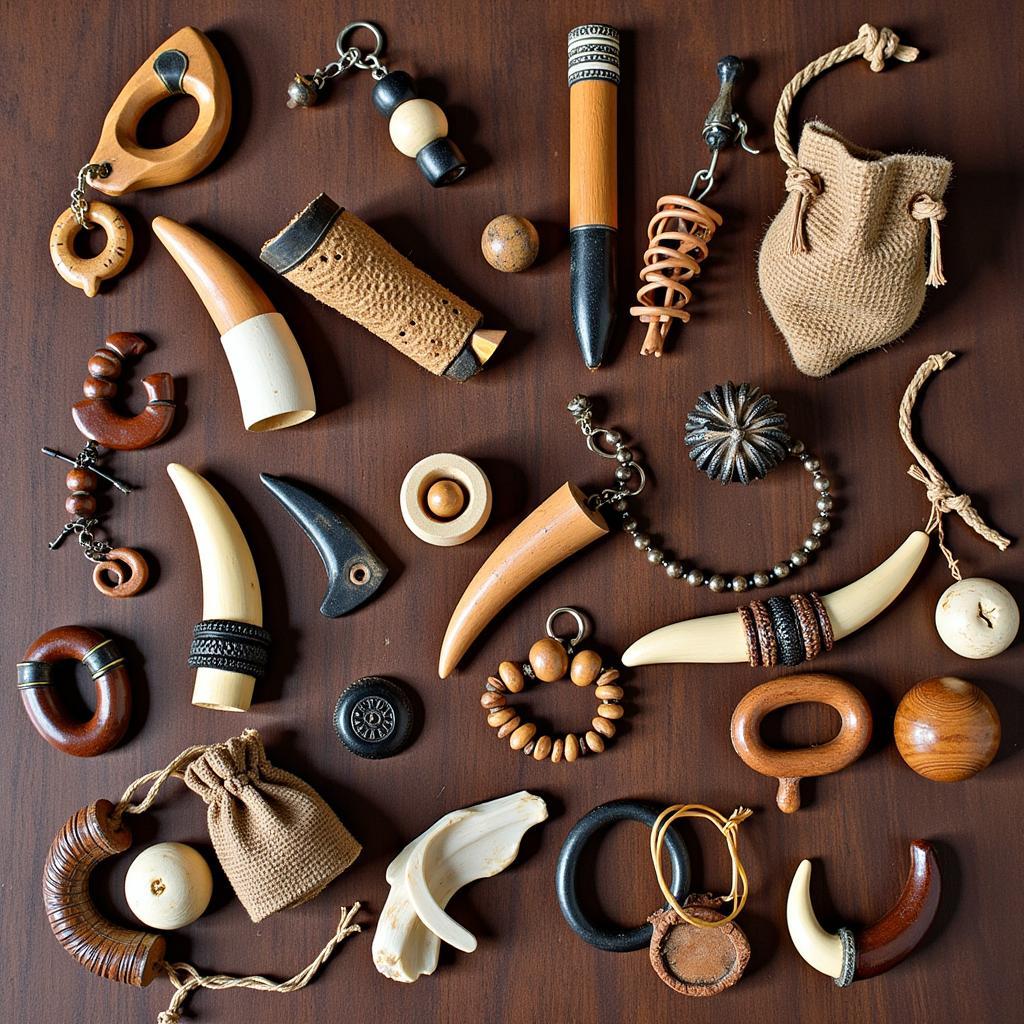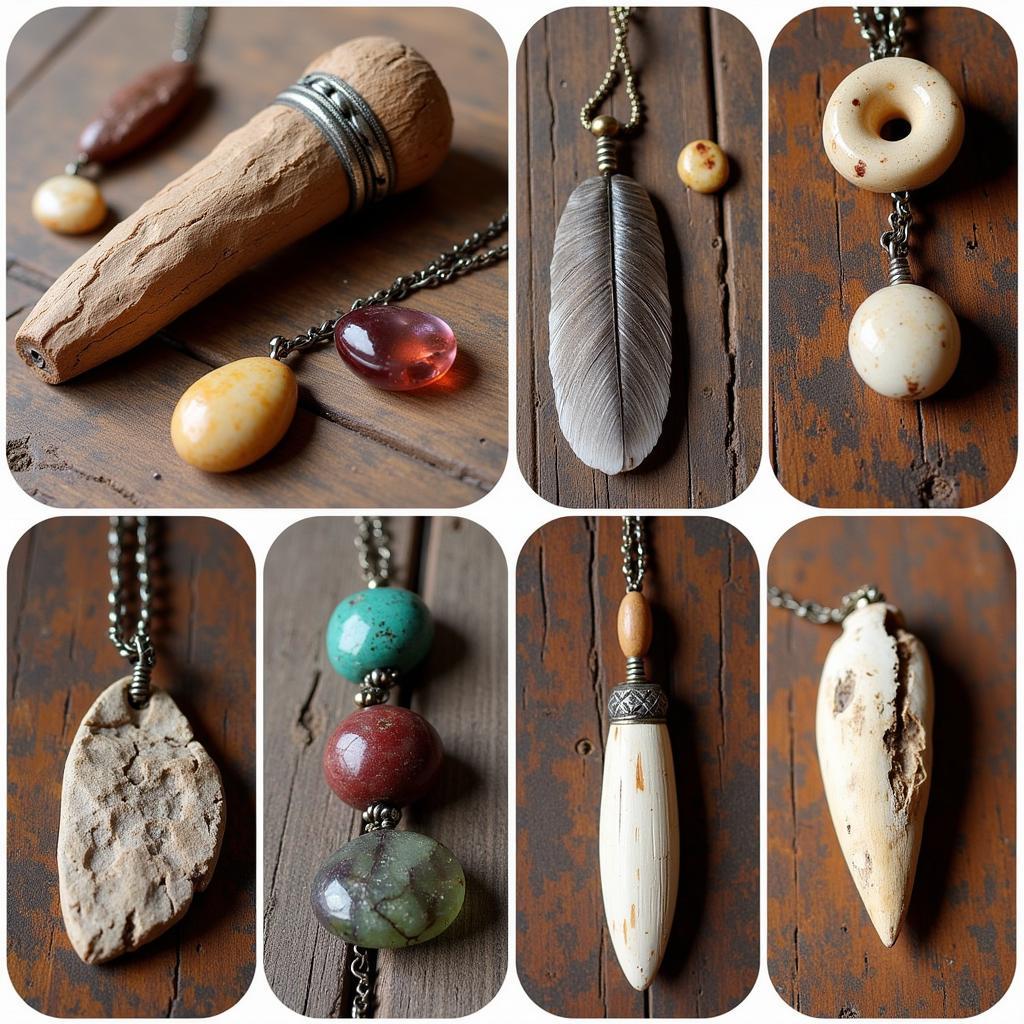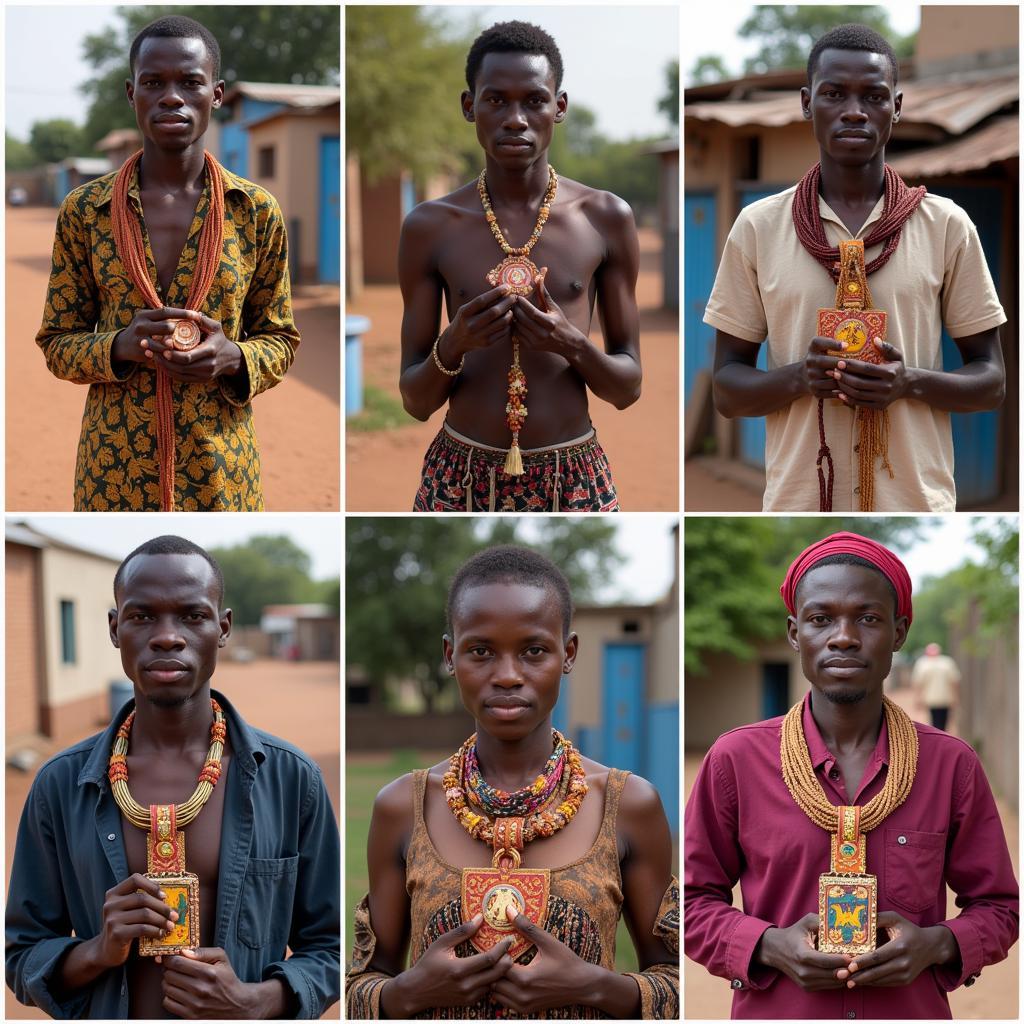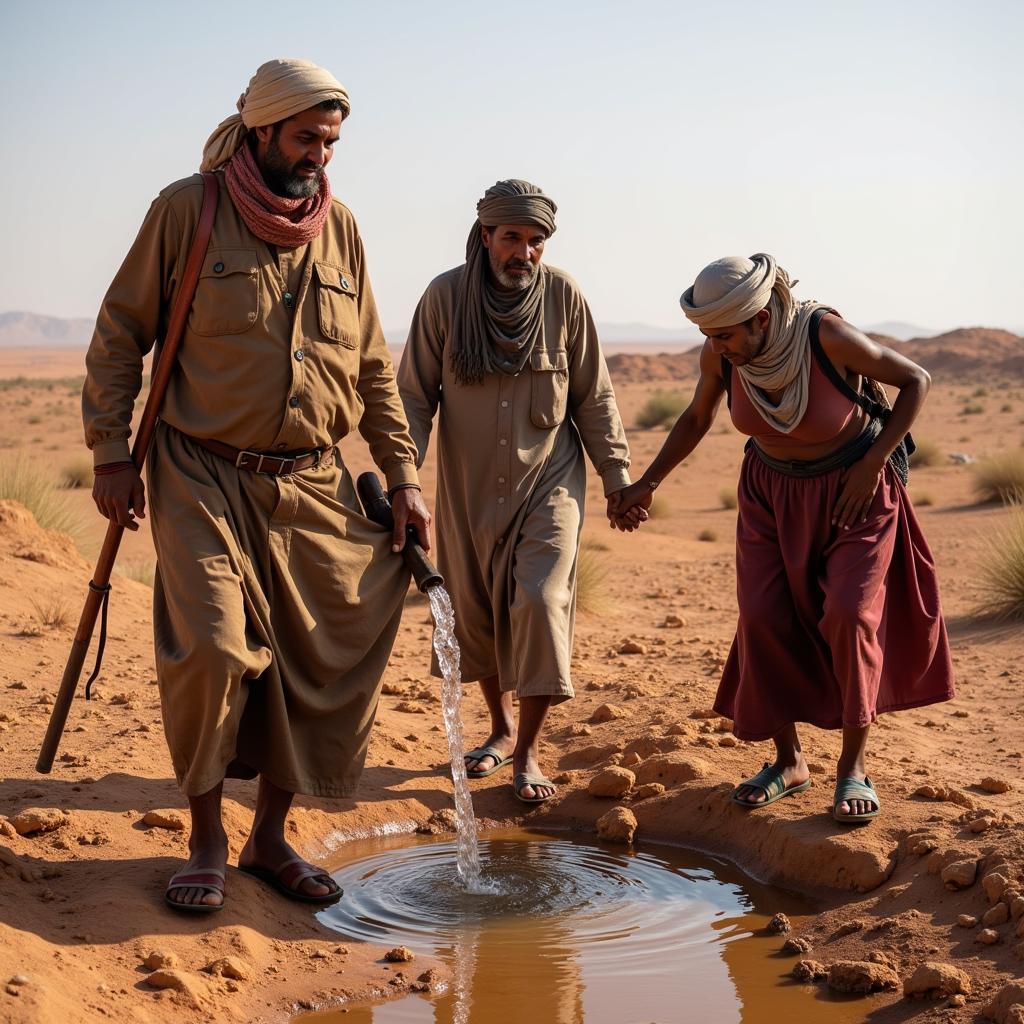Discovering African Good Luck Charms: A Journey Through Tradition and Belief
African Good Luck Charms represent a vibrant tapestry of cultural beliefs and traditions, offering a glimpse into the spiritual world of diverse communities across the continent. From intricately carved wooden figures to simple, yet powerful, natural objects, these charms hold deep meaning and are believed to offer protection, prosperity, and good fortune. Let’s explore the fascinating world of African good luck charms and uncover the stories behind these treasured objects.
The Power and Significance of African Good Luck Charms
Across the African continent, belief in the power of good luck charms is deeply ingrained in the cultural fabric. These charms, often passed down through generations, are not mere trinkets; they are tangible representations of hope, resilience, and connection to the spiritual realm. They can be worn as jewelry, carried in pockets, or placed in homes, serving as constant reminders of the desired blessings. For many, these charms are a source of comfort and strength, providing a sense of security in a world often filled with uncertainty. They offer a tangible link to ancestors and the spiritual world, reminding individuals of their place within a larger, interconnected universe. Some charms are associated with specific deities or spirits, while others derive their power from natural elements or symbolic representations.
 Variety of African Good Luck Charms
Variety of African Good Luck Charms
For example, african ankle bracelets meaning are more than just decorative items. They hold cultural and spiritual significance, often serving as protection or symbols of status.
Exploring Different Types of African Good Luck Charms
The diversity of African good luck charms is truly remarkable. Each region and tribe boasts its unique traditions and beliefs, resulting in a vast array of charms with specific purposes. Some common examples include:
- Gri-gris: Small, cloth bags containing herbs, stones, and other natural materials, believed to hold magical properties.
- Amulets: Objects worn for protection against evil spirits or to attract good fortune. These can range from simple beads to intricately carved pendants.
- Talismans: Objects believed to possess inherent magical powers, often inscribed with symbols or verses from sacred texts.
 Materials Used in African Good Luck Charms
Materials Used in African Good Luck Charms
Many African cultures believe in the protective power of animal totems, leading to the use of african elephant jewelry and other animal-inspired adornments as good luck charms.
How are African Good Luck Charms Used?
African good luck charms are integrated into daily life in various ways. They may be worn as african body jewelry, carried in pockets or purses, or placed in homes or businesses. Some are used in rituals and ceremonies, while others are simply kept as personal reminders of desired outcomes. The usage often depends on the specific charm and its associated beliefs. Some individuals might wear a specific charm during important events, while others might keep a charm in their home to protect their family.
Dr. Anika Olumide, a renowned anthropologist specializing in African cultures, explains, “The use of good luck charms is not merely superstition. It’s a deeply spiritual practice that connects individuals to their ancestors and the forces of nature. These charms represent hope and resilience in the face of adversity.”
African Good Luck Charms and Modern Society
Even in modern times, the belief in and use of good luck charms persists across Africa. While some may view these practices as outdated, many Africans find comfort and strength in these traditions. They serve as a link to their cultural heritage and provide a sense of continuity in a rapidly changing world.
 African Good Luck Charms in Modern Society
African Good Luck Charms in Modern Society
Traditional african jewewllery often incorporates symbolic elements that serve as good luck charms, seamlessly blending tradition and modern aesthetics.
Conclusion
African good luck charms offer a fascinating window into the rich spiritual and cultural landscape of the continent. These objects are more than just decorative pieces; they are tangible representations of hope, resilience, and connection to a deeper spiritual realm. From ancient traditions to modern practices, the power and significance of African good luck charms continue to resonate with people across the globe. By understanding the stories and beliefs behind these treasured objects, we can gain a greater appreciation for the diverse cultures that make up the vibrant tapestry of Africa.
FAQ
- What are the most common materials used in African good luck charms? Common materials include wood, bone, shells, feathers, stones, and metal.
- Are African good luck charms associated with specific religions? While some charms may be related to traditional African spiritual beliefs, others may be incorporated into practices of various religions, including Christianity and Islam.
- Where can I purchase authentic African good luck charms? Reputable vendors specializing in African art and crafts are the best sources. It’s important to ensure ethical sourcing and respect for cultural traditions.
- Can anyone use African good luck charms? While anyone can appreciate the beauty and craftsmanship of these objects, it’s important to approach them with respect and understanding of their cultural significance.
- Are there negative connotations associated with some African good luck charms? Some charms may be associated with specific practices or beliefs that may not be universally accepted. It’s essential to research and understand the meaning behind any charm before acquiring or using it.
- How do I care for my African good luck charm? Care instructions depend on the specific materials used. Consult the vendor or a reputable source for guidance.
- What is the significance of animal imagery in African good luck charms? Animals often hold symbolic meaning in African cultures, representing strength, wisdom, or other desirable qualities.
Other Questions You Might Ask:
- What is the connection between African good luck charms and traditional healing practices?
- How have African good luck charms influenced art and fashion?
You might also be interested in reading more about:
- African rituals and ceremonies
- The symbolism of colors in African culture
- Traditional African storytelling
When you need assistance, please contact us at Phone: +255768904061, Email: [email protected] or visit us at Mbarali DC Mawindi, Kangaga, Tanzania. We have a 24/7 customer service team.
